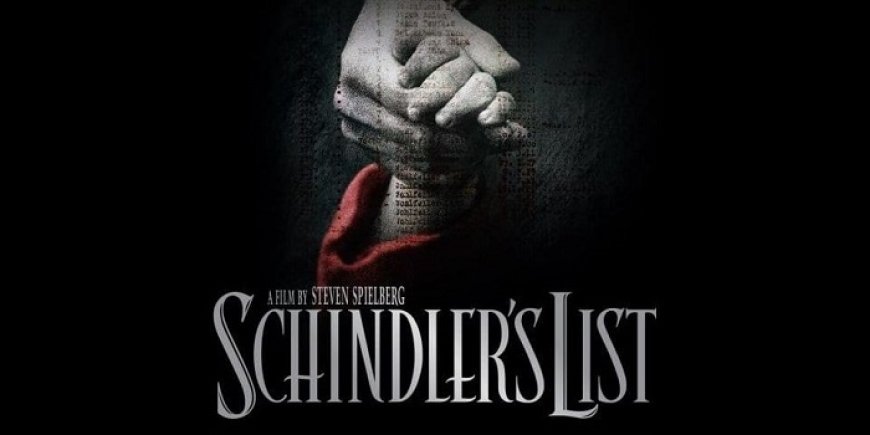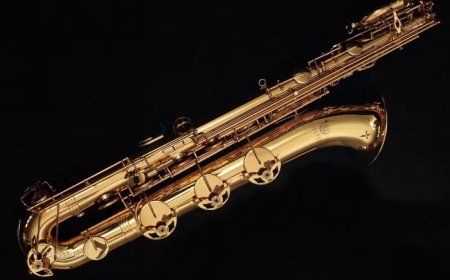TOP 20 American Historical Movies OF 1990s
The 1990s were a remarkable decade for Hollywood. Filmmakers took bold steps to revisit the past, using the big screen to tell stories rooted in real events.

The 1990s were a remarkable decade for Hollywood. Filmmakers took bold steps to revisit the past, using the big screen to tell stories rooted in real events. Whether focused on war, civil rights, political scandal, or personal triumphs, these films helped audiences connect with history in vivid and emotional ways.
During this time,American historical movies?evolved. Directors embraced realism and moral complexity. Characters were no longer just heroes or villains. Instead, they became layered and human. These films explored themes such as justice, freedom, identity, and the price of war. They did not simply recreate history. They interpreted it, challenged it, and made it resonate for new generations.
From the fields of Gettysburg to the courts of Alabama, from concentration camps to the halls of Washington D.C., the 1990s delivered some of the most powerful historical narratives in cinema. This article explores twenty essential American historical movies of that era. These titles made a lasting impact on both audiences and critics, shaping the way we remember history through film.
1. Schindlers List (1993)
A powerful portrait of moral courage
Directed by Steven Spielberg,Schindlers Listis one of the most haunting and influential historical dramas ever made. Based on the true story of Oskar Schindler, a German industrialist who saved over 1,000 Jews during the Holocaust, the film uses black and white cinematography to underline its gravity. Liam Neesons performance as Schindler captures the complexity of a flawed man who becomes a hero.
This film changed how American historical movies depicted genocide and war. It is emotionally overwhelming and deeply educational.
2. JFK (1991)
A political mystery with cinematic flair
Oliver StonesJFKinvestigates the events surrounding the assassination of President John F. Kennedy. Kevin Costner plays Jim Garrison, the New Orleans District Attorney who questions the official story. With rapid editing, layered storytelling, and controversial claims, the film became a lightning rod for debate.
More than just a conspiracy thriller,JFKexamines how history is constructed, manipulated, and remembered.
3. Malcolm X (1992)
A towering biopic of transformation
Directed by Spike Lee and starring Denzel Washington,Malcolm Xtells the story of one of Americas most influential and misunderstood figures. The film traces his journey from street hustler to Nation of Islam spokesman to independent human rights activist.
This film stands among the greatest American historical movies for its scope, intelligence, and emotional depth.
4. Saving Private Ryan (1998)
A turning point in American war cinema
Steven Spielberg returned to World War II with a brutal and realistic account of the Normandy invasion. The films opening scene at Omaha Beach became iconic for its intensity and accuracy. Tom Hanks leads a unit on a mission to rescue a paratrooper, Private Ryan.
This film redefinedAmerican historical moviesand particularly American war movies. Its realism influenced countless future productions.
5. The Crucible (1996)
Witch trials and political allegory
Based on Arthur Millers play,The Cruciblebrings the Salem witch trials to life. Daniel Day-Lewis and Winona Ryder star in this tense exploration of fear, accusation, and mass hysteria. Though set in the 1600s, the story parallels McCarthyism and other moments of political persecution.
The film is a chilling reminder of how history repeats itself through fear and ignorance.
6. Amistad (1997)
Justice and the struggle for freedom
Directed by Steven Spielberg,Amistadtells the story of a slave ship revolt and the legal battle that followed. Djimon Hounsou plays Cinqu, the African leader of the mutiny, while Matthew McConaughey and Anthony Hopkins portray lawyers who defend him.
This film reflects on the early days of American justice and the unfinished business of human rights.
7. The People vs. Larry Flynt (1996)
Free speech on trial
Directed by Milo Forman, this film follows the controversial life of Larry Flynt, publisher of Hustler magazine. Played by Woody Harrelson, Flynt becomes an unlikely figure in the battle for First Amendment rights. The film questions the limits of freedom and the nature of offense.
It is a bold example of howAmerican historical moviescan tackle legal and cultural issues with nuance.
8. Apollo 13 (1995)
A space missions near disaster
Ron HowardsApollo 13tells the true story of NASAs ill-fated lunar mission. Tom Hanks stars as astronaut Jim Lovell, leading a team that must return safely after a technical failure in space. The film is tense, patriotic, and technically impressive.
It celebrates American ingenuity and perseverance under extreme pressure.
9. Nixon (1995)
A complex portrait of power and downfall
Oliver Stone'sNixonexamines the life and presidency of Richard Nixon, portrayed by Anthony Hopkins. The film covers his political rise, personal demons, and eventual resignation after the Watergate scandal.
This ambitious film attempts to understand rather than condemn, making it one of the more layered historical biopics of the 1990s.
10. Glory (1990)
African American soldiers in the Civil War
Glorytells the story of the 54th Massachusetts Infantry Regiment, the first African American unit to fight in the Civil War. Denzel Washington won an Oscar for his role, alongside strong performances from Morgan Freeman and Matthew Broderick.
It remains one of the most emotional and significant American historical movies about race, war, and honor.
11. The Insider (1999)
Big tobacco and whistleblowing
Michael MannsThe Insiderexplores the story of Jeffrey Wigand, a scientist who exposes the truth about nicotine addiction. Russell Crowe and Al Pacino star in this gripping account of journalism, ethics, and corporate power.
The film is a strong example of how real-life events become cinematic thrillers when truth is at stake.
12. Gettysburg (1993)
A battle reimagined on screen
Based on the novelThe Killer Angels, this lengthy Civil War epic recreates the Battle of Gettysburg with painstaking attention to detail. Featuring Jeff Daniels and Martin Sheen, the film captures both military strategy and personal sacrifice.
It appeals to both history enthusiasts and general audiences alike.
13. Titanic (1997)
Romance and tragedy on the ocean
James CameronsTitanicmay center on a fictional love story, but the backdrop is one of the most famous disasters in maritime history. With epic scale and visual grandeur, the film captures both the class divisions and emotional depth of the real-life tragedy.
This film became a global phenomenon and remains an iconic part of American historical storytelling.
14. Quiz Show (1994)
Game shows, lies, and public trust
Robert Redford directs this smart and stylish film about the 1950s quiz show scandals. Ralph Fiennes plays Charles Van Doren, whose rise and fall reflect a loss of innocence in American television.
The film exposes how history can be shaped by illusion and fame.
15. Selma, Lord, Selma (1999)
Civil rights through a childs eyes
This lesser-known made-for-TV film follows the events of the Selma voting rights marches through the perspective of a young girl. It offers a personal view of a crucial chapter in American civil rights history.
Simple yet powerful, it remains a quiet entry in the canon ofAmerican historical movies.
16. Ghosts of Mississippi (1996)
Justice decades in the making
This courtroom drama tells the story of the 1994 trial of Byron De La Beckwith, who murdered civil rights leader Medgar Evers in 1963. Alec Baldwin and Whoopi Goldberg deliver heartfelt performances in a film about delayed justice.
It highlights the enduring impact of racism and the long fight for accountability.
17. A Few Good Men (1992)
Military ethics under fire
Though fictional,A Few Good Menis grounded in military law and real-life protocols. Tom Cruise plays a young lawyer defending two Marines, while Jack Nicholsons Colonel Jessup delivers one of the most quoted lines in film history.
The film explores honor, truth, and the complexity of justice within rigid institutions.
18. Born on the Fourth of July (1990)
The aftermath of war
Directed by Oliver Stone and starring Tom Cruise, this film tells the story of Ron Kovic, a Vietnam veteran who becomes a passionate anti-war activist. The film is raw and emotional, showing how war wounds extend beyond the battlefield.
It connects to the tradition of American war movies but shifts focus to their consequences at home.
19. Dead Man Walking (1995)
A moral journey through capital punishment
Based on real events, this film stars Susan Sarandon as a nun helping a death row inmate, played by Sean Penn. It asks difficult questions about justice, forgiveness, and redemption.
Emotionally intense, it is a deeply human historical drama.
20. Thirteen Days (2000)
An edge-of-your-seat Cold War thriller
Though technically released just outside the 1990s,Thirteen Daystells the story of the Cuban Missile Crisis with accuracy and tension. Kevin Costner portrays a White House aide during one of the most dangerous moments in American history.
It captures the political stakes and personal pressures behind closed doors.
Conclusion: A Decade of Memory and Meaning
The 1990s gave us a powerful wave ofAmerican historical movies. These films invited us to question, reflect, and remember. Whether examining famous figures, legal battles, civil rights, or acts of war, they told stories that still shape the way we view our past.
These twenty films are more than entertainment. They are documents of memory. They are tools for education. And they are windows into the lives, struggles, and choices that have defined history.




























